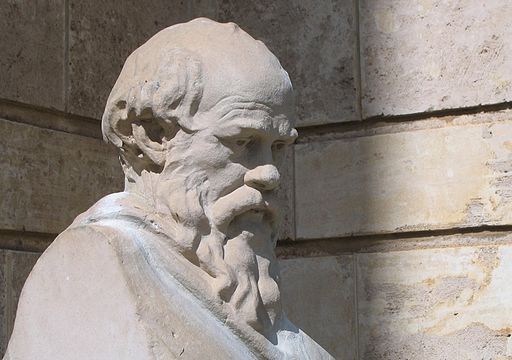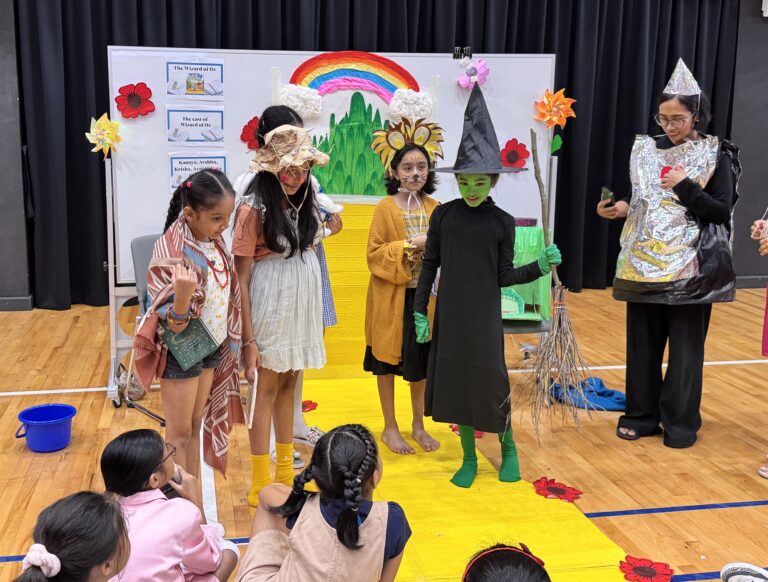Socrates has long been considered the father of modern education. He believed that, as self-learners, we must first admit to our ignorance and realise that there is a world of knowledge ready to be accessed, but only once we can accept that we don’t already know everything. We must also accept that what we do ‘know’ might not be as correct as we think. The Socratic Method of education encourages students to ask questions, think critically and come to their own conclusions.
I believe that modern educational frameworks such as those offered by the IB have been inspired, knowingly or unknowingly, by the Socratic approach. The educator’s role is to inspire and give students opportunities to explore their skills and knowledge, rather than lecture. Learning should be led by the students, who should be able to express what they have learned as individuals, and in their own unique way.
What is the Socratic Method of Teaching
At its core, the Socratic Method of teaching is an educational approach that champions inquiry and dialogue. It is a method that encourages learners to think deeply and question freely. Let’s delve into its key aspects:
- Dialogic Interaction: Central to the Socratic Method, this principle involves a conversational flow between educator and learner, where questions lead to further questions, fostering a rich, collaborative exploration of topics.
- Critical Thinking: This method emphasises the learner’s ability to analyse and evaluate information critically, encouraging a departure from rote memorisation to a more thoughtful examination of ideas.
- Admission of Ignorance: A starting point for true inquiry, this principle suggests that acknowledging one’s lack of knowledge is the first step towards genuine learning and understanding.
- Active Learning: Here, students are not passive recipients of knowledge. Instead, they actively engage with material, peers, and educators, exploring and constructing knowledge through experience and reflection.
The Socratic Method seeks to impart knowledge and expand the capacity to think and understand. It stands in contrast to traditional educational methods, which often prioritise content delivery over cultivating analytical skills and intellectual curiosity.
Comparative Analysis: Socratic vs. Traditional Teaching Methods
Both Socratic and traditional teaching methodologies bring unique strengths to the educational landscape. Indeed, they can complement each other, offering a more holistic approach to learning that addresses a range of student needs and preferences.
- Teacher’s Role: In the Socratic framework, the teacher transforms from an authoritative source of knowledge into a guide, encouraging students to navigate their learning journey through inquiry and self-exploration.
- Student Engagement: Socratic learners are actively involved in their education, engaging in dialogue that challenges and refines their thinking. This dynamic interaction contrasts with the more passive learning stance often found in traditional settings.
- Focus on Process over Content: Traditional teaching methods tend to be more results-oriented, emphasising the mastery of specific content. In contrast, the Socratic Method values the process of inquiry itself, fostering critical thinking and problem-solving skills over mere factual recall.
- Constructive Discomfort: True to its namesake, the Socratic Method provokes and challenges students beyond their intellectual comfort zones. This approach, aiming to stimulate deep thought and self-reflection, differs markedly from traditional methods, which often seek to deliver clarity and comfort in learning.
The Educational Theories of Socrates
Socrates was best known as a man of questions. He had questions about everything — from the practicalities of everyday life to the existential natures of the human mind. As he guided and mentored his students, he would encourage them to ask questions. He believed learners could only obtain knowledge if they genuinely wanted to seek it for themselves.
In fact, it was not uncommon for students to ask Socrates a question, only to have him not provide the answer. Instead, he would ask his students questions in return, forcing them to think critically and draw their own conclusions based on facts and research. He also strongly felt that students should experience what they were learning about rather than simply read about a topic or study it from a secondary source.
- The Theory of Value — Socrates’ Theory of Value was based on trivial and important knowledge and attempted to identify what type of knowledge was worth learning.
- The Theory of Knowledge — In his Theory of Knowledge, Socrates breaks down the various types of knowledge and what makes knowledge different from a personal belief.
- The Theory of Human Nature — Socrates’ Theory of Human Nature explores what makes humans different from other species, and he notes that humans are capable of differentiating between right and wrong.
- The Theory of Learning — His Theory of Learning notes that humans can only gain knowledge once they realise they do not have it to begin with. It acknowledges that questioning is the root of the educational process.
- The Theory of Transmission — Socrates explains, through his Theory of Transmission, that there is not one type of teacher. He notes that many types of people using a variety of methods can be effective teachers who transmit knowledge.
- The Theory of Society — In Socrates’ time, knowledge was not acquired within a specific classroom or learning. It took place through societal interactions. He explored this concept through the lens of the class system of Ancient Athens.
The Theory of Opportunity — In Socrates’ Theory of Opportunity, he touched on who was meant to gain knowledge and who should attend a form of school. He rejected the idea of gaining knowledge just for the sake of it, instead preferring people to gain knowledge that they could apply to their lives or professions. - The Theory of Consensus — In the Theory of Consensus, Socrates states that humans should use their moral virtues to guide their disagreements and come to a consensus.
The Benefits of the Socratic Approach To Teaching
Enhanced Critical Thinking and Analytical Skills
As education evolves beyond rote memorisation, the Socratic Method illuminates learning models with insight-driven exploration. This approach beckons students to critically engage with the world, urging them to question the world around them and why things are the way they are. This helps nurture a robust analytical mindset, which they will carry with them as they grow in personal and intellectual aspects.
Encouragement of Curiosity and Lifelong Learning
Gone are the days when learning was confined within the four walls of a classroom or the pages of a textbook, concluding with the pomp of graduation. The Socratic Method breathes life into the concept of continuous education, sowing the seeds of curiosity that flourish beyond formal schooling. We want to equip students with a genuine curiosity to learn and approach life’s myriad challenges with a learner’s zeal, perpetually seeking to understand, adapt, and innovate.
Improved Communication and Dialogue Skills
At the heart of the Socratic Method lies discourse and dialogue. It’s a practice that inherently boosts students’ confidence to voice questions, express doubts, and engage in meaningful conversations. This method crafts a classroom environment where the exchange of ideas becomes encouraged and creates a culture of openness. Learners become adept at articulating their thoughts and questions, fostering a community where the admission of “not knowing” is seen not as a weakness but as the first step towards understanding and knowledge.
The Challenges of Implementing the Socratic Method
While the Socratic Method offers substantial educational benefits, its effective implementation requires nuanced understanding and skilful application.
Necessity for Skilled Facilitation by Educators
A fundamental challenge is the requirement for educators to be thoroughly acquainted with and adept at applying the Socratic Method. Teachers must evolve, becoming proficient at navigating diverse perspectives and guiding conversations constructively without dominating the discourse. Mastery over fostering open-ended discussions—a hallmark of this method—demands a nuanced skill set, often necessitating educators to refine or even relearn how to engage with students.
Time and Patience Required for Deep Discussions
The Socratic Method’s emphasis on discussion for concept exploration inherently demands more time, significantly differing from the quicker pace of direct instruction many are accustomed to. This approach requires patience from both educators and students, as the journey to understanding can be lengthy and unpredictable. The challenge lies in managing classroom time efficiently while ensuring that the depth of conversation does not compromise the coverage of the curriculum.
Balancing the Socratic Method with Curriculum Requirements
Integrating the Socratic Method into standardised education frameworks presents a unique challenge. The method’s slower, contemplative pace may not always align with the broad and often rigid curriculum requirements of modern education systems. Educators face the daunting task of melding this thoughtful approach with the necessity to meet standardised testing and benchmark expectations. This balance between promoting deep, process-oriented learning and achieving quantifiable academic outcomes is a complex endeavour that requires innovative solutions and flexibility from teaching professionals.
Research and Evidence Supporting the Socratic Method
The principles championed by Socrates have endured through centuries, demonstrating an unwavering relevance in today’s educational landscape. Recent studies and scholarly inquiries into the Socratic Method have shed light on its impactful role in enhancing student learning experiences, yielding positive outcomes.
In an investigation at Grace University, the implementation of the Socratic Method of Education revealed its profound effect on fostering critical thinking skills among students. These learners not only embraced a deeper engagement with the material but also exhibited a marked propensity for taking initiative in discussions. Their frequent, insightful questioning evidenced an advanced understanding and adeptness at navigating complex information.
Conversely, a study at Naresuan University offered a nuanced perspective by examining undergraduate business students through the lens of a Blended Socratic Method of Teaching (BSMT). The findings highlighted a noticeable struggle among students to formulate conclusions from given facts or to venture beyond the information directly presented to them. This underscored the critical role of fostering analytical skills within educational models, suggesting a pivotal area for refinement in applying the Socratic Method.
These insights illuminate the profound impact and the challenges of integrating the Socratic Method with contemporary curriculum demands. Yet, the evidence also points to the adaptability and success of modern educational institutions in embedding this timeless approach into their teaching practices, affirming its value in cultivating a more insightful, inquisitive, and critically engaged student body.
How Socrates’ Teaching Methods Influence Education Today
Every generation of learners is different and has different expectations for their educational experience. However, one thing has remained constant throughout the course of time: all learners want to enjoy themselves, and all learners want freedom throughout the learning process.
It is important that educational administrators and teachers keep this in mind as they plan and implement their curriculum programmes. Most schools have an educational framework for their chosen curriculum, which includes a set of expectations for what each student should have learned after completing the programme. While these expectations are clearly outlined, the method for getting there is not always well-defined. This allows teachers to get creative and use their own approaches to educate students within the prescribed framework of the curriculum. Socrates was a pioneer in creative methods of teaching and learning, and his legacy continues in the creative freedom that our contemporary educators employ.

The Socratic Method in the Modern Classroom
The Socratic Method is an ancient practice that is still relevant in today’s modern classrooms. In fact, with the increasingly complex challenges that the interconnected world is facing today, it may be more relevant than ever before.
Here are just a few of the ways that the Socratic Learning Method is implemented in modern-day classrooms:
- Students have an opportunity to direct their own learning. In classrooms today, students are able to customise the learning experience and guide their own learning by setting objectives for themselves. With their teachers, they create a plan to achieve those goals.
- Students often work in group-based settings in order to improve their collaboration skills. Students learn to work with their peers and navigate different ideas as they come to a consensus on how to approach their project.
- Students have the chance to choose a format that allows them to showcase their learning. For example, they may have an opportunity to create a video in order to fulfil the requirements of the assignment, or they may prefer to design a brochure. They can apply their learning and knowledge in a way that works best for them.
- Students are questioned by their educators, inspiring them to dig deeper and think more critically throughout the learning process. As students submit work and document their progress, their teachers will ask questions — just like Socrates did to his own students. This forces the students to look inward and continue seeking more knowledge as they complete their work.
- Students receive feedback from their teachers, giving them the confidence they need to keep moving forward on their educational journey. As teachers celebrate their successes and their progress, they help them decide on the next steps they need to take in order to complete the work and continue gaining knowledge from the experience.
Blending Other Teaching Methods with the Socratic Method
For generations, educators have realised the value that Socrates offered through his words, actions and well-developed theories. However, most teachers and administrators have found that blending the Socratic approach to teaching with different strategies provides students with a well-rounded experience.
For example, Socrates would never have dreamed of giving his students a worksheet to complete at the end of a unit to determine if a student had met the goals established by the chosen curriculum. However, in today’s dynamic classrooms, teachers and administrators work to blend other teaching methods with the approach that Socrates used.
By providing students with resources, such as books, videos or learning apps, teachers give them the tools that they need to study in a way that feels comfortable to them. Worksheets and other assignments allow students to become aware of their learning experience and determine whether or not they fully understand the topic at hand. All of these additional learning materials have value and are utilised in classrooms to provide students with a balanced learning experience. By blending the Socratic Method with other teaching methods, teachers are more likely to reach all students and provide them with every opportunity to be successful.
Examples of Socrates’ Influence at OWIS
Students in all grade levels will quickly realise that Socrates’ philosophy on education has heavily influenced the learning environment at One World International School. Many of the projects and assignments that they are required to complete involve a variety of elements, including critical thinking, questioning and collaborative work. The teachers at OWIS go above and beyond to ensure that students have opportunities to experience their lessons in the real world — much like Socrates did for his own students in Ancient Greece.
Here’s an example from my own experience in a Grade 10 Business Studies class: I gave my students an assignment to create a brand for a new energy drink. I asked students to read the relevant chapter in their textbook to determine which areas they needed to show evidence of learning. Instead of answering questions on a worksheet about the chapter they read, students were required to:
- Conduct market research
- Adjust their ideas and pitches based on the feedback they received from their market research
- Price their own product
- Design packaging for the energy drink they created
This hands-on project required innovative thinking and collaboration. It was far more effective at teachers students about the business world because they were immersed in the experience and discovering their skills through their experiential learning project.
The Role of Parents in Socratic Learning
Parents play a crucial role in their child’s educational journey, not just through support and encouragement but also as active participants. One effective approach parents can adopt is the Socratic Method, a form of cooperative argumentative dialogue that stimulates critical thinking and illuminates ideas. This method can be seamlessly integrated into daily interactions, as we’ll explore with specific techniques below.
- Asking Open-Ended Questions: Encourage your child to think deeply by asking questions that don’t have a yes or no answer, prompting them to explain their reasoning.
- Following Up: Dive deeper into their thoughts with follow-up questions like, “Why do you think that?” or “What makes you say so?” to encourage further reflection.
- Encouraging Analysis: When they express an opinion, ask them to consider the opposite viewpoint or what evidence supports their view.
- Drawing Connections: Help them relate new information to what they already know, asking how new ideas compare with their previous understanding.
- Promoting Self-Reflection: Encourage them to question their own assumptions and beliefs, fostering a habit of self-examination and continuous learning.
In your daily interactions, whether during playtime or casual conversations, you have the opportunity to engage your children in thoughtful discussions that stimulate their curiosity and analytical skills. By weaving the Socratic Method into these moments, you can transform ordinary exchanges into rich, educational experiences. Try these questions and discussions the next time you play with your child:
- On Decisions: “What led you to make that choice?”
- On Observations: “What do you notice about this, and why do you think it’s important?”
- On Comparisons: “How is this similar to or different from other things you’ve seen?”
- On Consequences: “What might happen if you did this differently?”
- On Reflections: “How has your thinking changed after learning this?”
Does the Socratic Method Have a Place in Modern Education?
Throughout their educational journey, most students are looking toward the future. They dream of what they want to be and who they want to become. As they look forward, it’s important that educators also look to the past. Socrates lived in Ancient Greece hundreds of years before the Common Era. Still, his influence on our educational systems and ways of thinking extends into the present day.
If Socrates had access to the never-ending reaches of the internet and an endless wealth of information, who knows what he could have done? If teachers attempt to take the same approach as Socrates and apply the Socratic Method in the classroom, they will be able to help their students become the lifelong learners that the world needs most right now.
To learn more about how Socrates’ experiential learning methods are applied in our secondary school, and to understand OWIS’ educational philosophy, contact us or schedule a school tour with us.
(This blog was originally written in collaboration with Ms Luna Deller, former Deputy Head of School, OWIS Nanyang.)



















